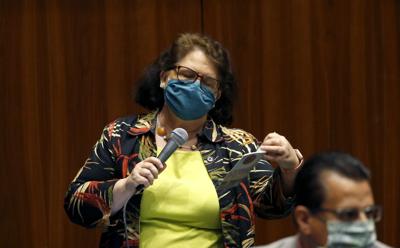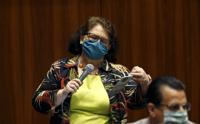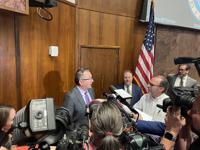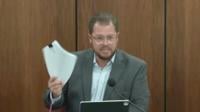(The Center Square) – A complaint filed with Attorney General Mark Brnovich claims the son of an Arizona lawmaker lives in New York even though records show him having voted in both Arizona and California for years.
The criminal complaint by Tempe resident Peggy McClain alleges Daniel Jonathan Epstein, the 29-year-old son of Democratic state Rep. Denise "Mitzi" Epstein of Tempe, has been a resident of New York for several years.
Despite his East Coast address, the actor has continued to vote in Arizona's elections, most recently as a registered Democrat in Tempe's municipal election in March, the complaint says.
The younger Epstein is registered to vote at his parents' Tempe home. The complaint's evidence shows he voted in both Arizona elections in 2018. The claim shows he's listed on the Permanent Early Voting List, Arizona's voluntary mail-in voter roll that doesn't need renewing.
In addition to his Arizona residency, Epstein has claimed a California residence, according to the complaint, which says he was registered and voted in both California's and Arizona's 2010 General Election. If substantiated, this could represent multiple felonies under Arizona law, according to the complaint.
The complaint lists evidence of him living primarily in New York City. Publicly available information on his Facebook page lists previous jobs in California, New York, New Jersey and Arizona. His acting resume on Backstage.com lists him as being from Queens, New York.
"The bottom line is that Mr. Epstein lives in New York City," the complaint said. "Though he previously was an Arizona resident, he is no longer one and cannot legally vote here."
Emails to Rep. Epstein were not immediately returned. A member of the Arizona legislature since 2017, Epstein has sponsored legislation dealing with campaign finance laws as well as elections.
The complaint urges further investigation into Rep. Epstein and any potential involvement in her son's local voting.
In recent months, the expansion of vote-by-mail has become a hot-button topic as states seek to improve voter turnout and protect voters and poll workers from potential exposure to COVID-19.
As McClain's attorney, Tim La Sota said it’s clear that circumstances such as these are why some people are so hot to go to mandatory mail-only elections.
"It would make it much easier, and tempting, for people who are not eligible to vote to vote illegally because they would be given all the tools to do so easily-by government itself," he said.
Even as warnings of voter fraud persist, many states have taken steps to increase remote access to the ballot box. According to the National Conference of State Legislatures, five states – Colorado, Hawaii, Oregon, Utah and Washington – allow all elections to be conducted by mail.
President Donald Trump tweeted in a much-reported message last week that "There is NO WAY (ZERO!) that Mail-In Ballots will be anything less than substantially fraudulent. Mail boxes will be robbed, ballots will be forged & even illegally printed out & fraudulently signed. The Governor of California is sending Ballots to millions of people, anyone living in the state, no matter who they are or how they got there, will get one. That will be followed up with professionals telling all of these people, many of whom have never even thought of voting before, how, and for whom, to vote. This will be a Rigged Election. No way!"
Twitter made the controversial move to add a fact-check marker to the tweet.
When asked about Trump's tweets Thursday, Gov. Doug Ducey said the state had "done a very good job on making it easy to vote and hard to cheat."
In light of the COVID-19 pandemic, a poll conducted by Harris Poll showed more than 70 percent supported making November's election entirely vote-by-mail.
While NCSL says expanded vote-by-mail access can improve voter access, satisfaction and turnout, they caution it can increase taxpayer costs, negatively affect underserved communities such as Native Americans without addresses, and increase opportunities for coercion by family members or others.









